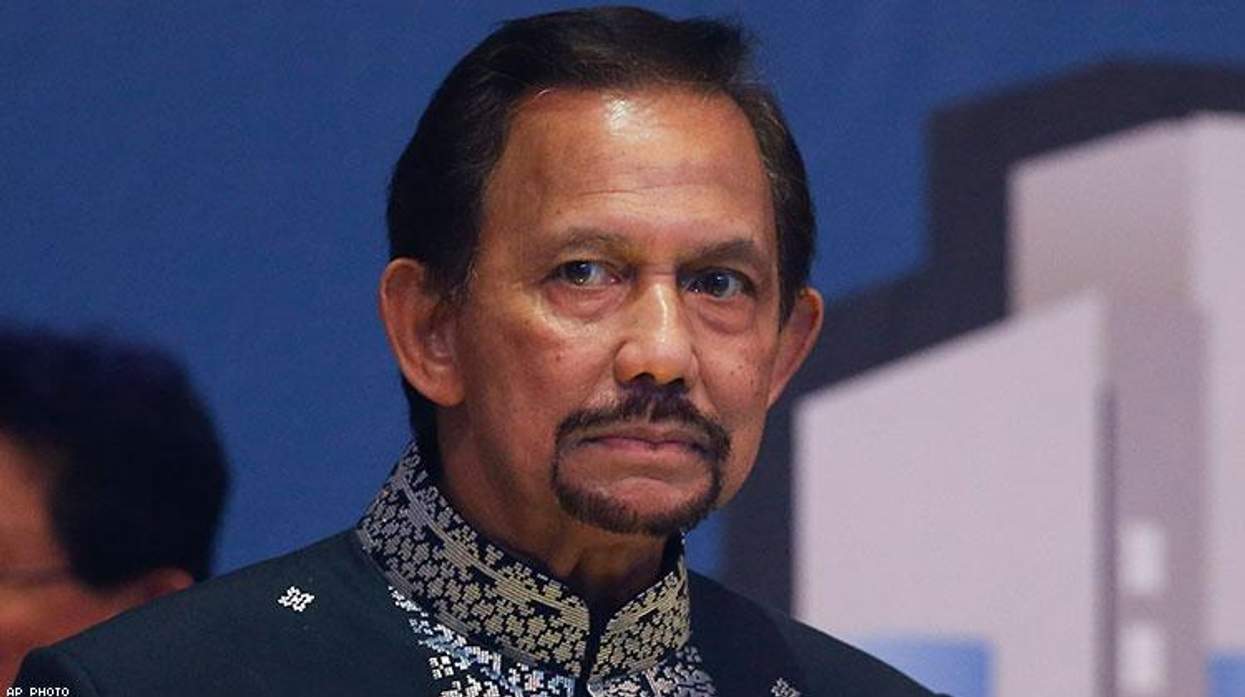There has been, understandably, much outcry against the sultanate of Brunei's imposition of what is often called Sharia law -- a legal system based on Islam. But Sharia is not monolithic, according to many scholars of Islam; it can be and is interpreted in different ways from one country to another. And some point out that referring to Sharia as "law" is problematic -- it's a religious way of life.
Brunei, ruled dictatorially by Sultan Hassanal Bolkiah, began incorporating aspects of Sharia into its penal code in 2014, causing international outrage and a boycott of the luxury hotels owned by the sultan's company, the Dorchester Collection. Some portions of the code going into effect in April provide for death by stoning for people who have sex with a person of the same gender and women who have sex outside of marriage, and for amputation of a hand or foot for thieves.
But one can be a faithful Muslim and follow Sharia without endorsing horrifying laws such as these, scholars and activists say.
Sharia, sometimes styled as Shari'a, is not actually a legal code, explains the Muslims for Progressive Values website. "It is the overall way of life of Islam, as people understand it according to traditional, early interpretations," the site says. These interpretations date from the eighth to the 10th centuries, with Muslim theologians basing them on the Koran (sometimes spelled Quran or Qur'an, the faith's holy book) and on their ideas about what the Prophet Muhammad, who died in 632, would say. "Shari'a can evolve with Islamic societies to address their needs today," the site continues.
Sharia "is a set of guidelines for living a responsible moral life," the site says. "It covers how a person can relate to God and to others ethically. It is open-ended and flexible." It governs such things as religious practices and treating others with compassion.
"In Arabic, 'Sharia' literally means 'path,' and is understood to be the path to salvation," said Clark Lombardi, director of Islamic legal studies at the University of Washington School of Law, as quoted by Snopes in 2017. "It is the sum total of the things that you must do (and refrain from doing) if you are going to heaven. This includes things that states enforce (laws against theft) and also some things that states never try to enforce -- how to greet your neighbors, what to eat, how to brush your teeth etc. You answer to God for everything in the Sharia, and you only answer to the state for a few of them."
"Many Islamic countries believe they are following Shari'a in family law matters, but Shari'a is not a legal system," according to Muslims for Progressive Values. "These countries actually use some kind of Islamic Law in family matters, and in all other matters apply European-style law left over from colonization. Iran, Saudi Arabia and a few other countries claim that most of their laws are based on Shari'a, but, in fact, most of those laws are secular. Even those laws which come from Islamic Law are different from place to place because they are interpreted by people -- and those people are influenced by their culture."
The draconian laws being applied in Brunei are not mandated by Sharia, notes the website for the U.S.-based Islamic Networks Group. "Some people falsely equate Sharia with criminal or huddud laws, which are centuries-old specific punishments for major crimes such as killing, adultery, or theft," the organization says. "Huddud laws are only a tiny part of Sharia and can only be applied by an Islamic state; it is questionable if any of the nations claiming to be 'Islamic states' actually fit that description morally or structurally, so these laws are generally not applicable in a modern context. ... Unfortunately, the misapplication of these laws by the Taliban or other contemporary groups or governments generally contradict both the letter and spirit of Sharia and have given it a bad name."
In countries that have huddud laws, the harshest penalty is rarely imposed, according to Georgetown University Islamic civilization scholar Jonathan Brown, also quoted in the Snopes post. That is unlikely to be of any comfort to LGBTQ people and others targeted by such laws, but Brown says they are balanced out by a Sharia directive to "maximize mercy."
Muslims for Progressive Values says frankly that such laws should be changed. They are not the same as Sharia or the religion of Islam, and are based on "human interpretation," its site says. And even Sharia has had to evolve with the times, recognizing, for instance, that women are not financially dependent on men, the group notes.
"Some people fiercely hold on to family law as symbolic of their faith, with the mistaken idea that Islamic Family Law is Shari'a," the group asserts. "This is not true, however. Current Islamic Law cannot be called Shari'a. Applying Shari'a as law changes it, and applying only certain parts of Shari'a causes social problems, such as human rights issues. Family law in Islamic countries today should be guided by fair social policies, as well as Islamic principles that do not distort the Qur'an."















Charlie Kirk DID say stoning gay people was the 'perfect law' — and these other heinous quotes
These are some of his worst comments about LGBTQ+ people made by Charlie Kirk.